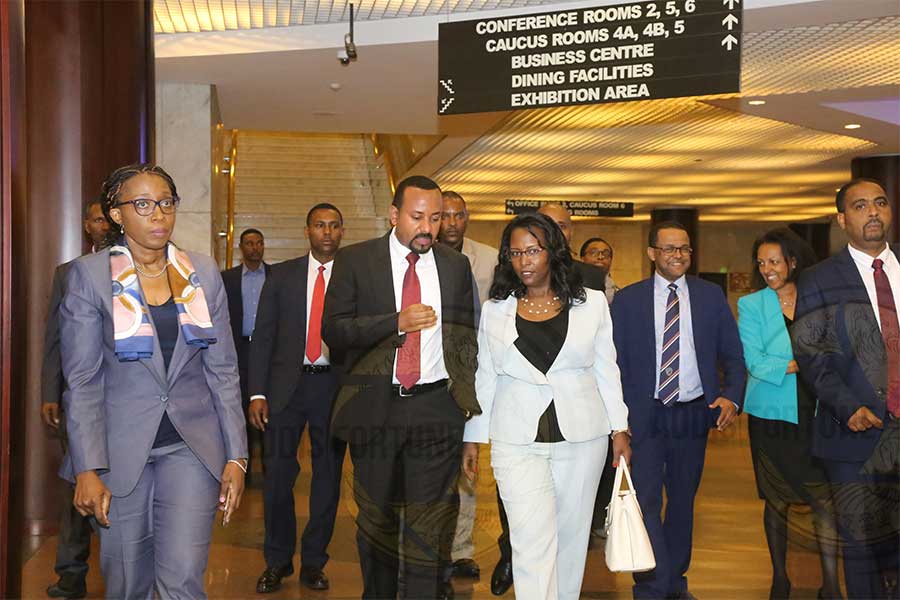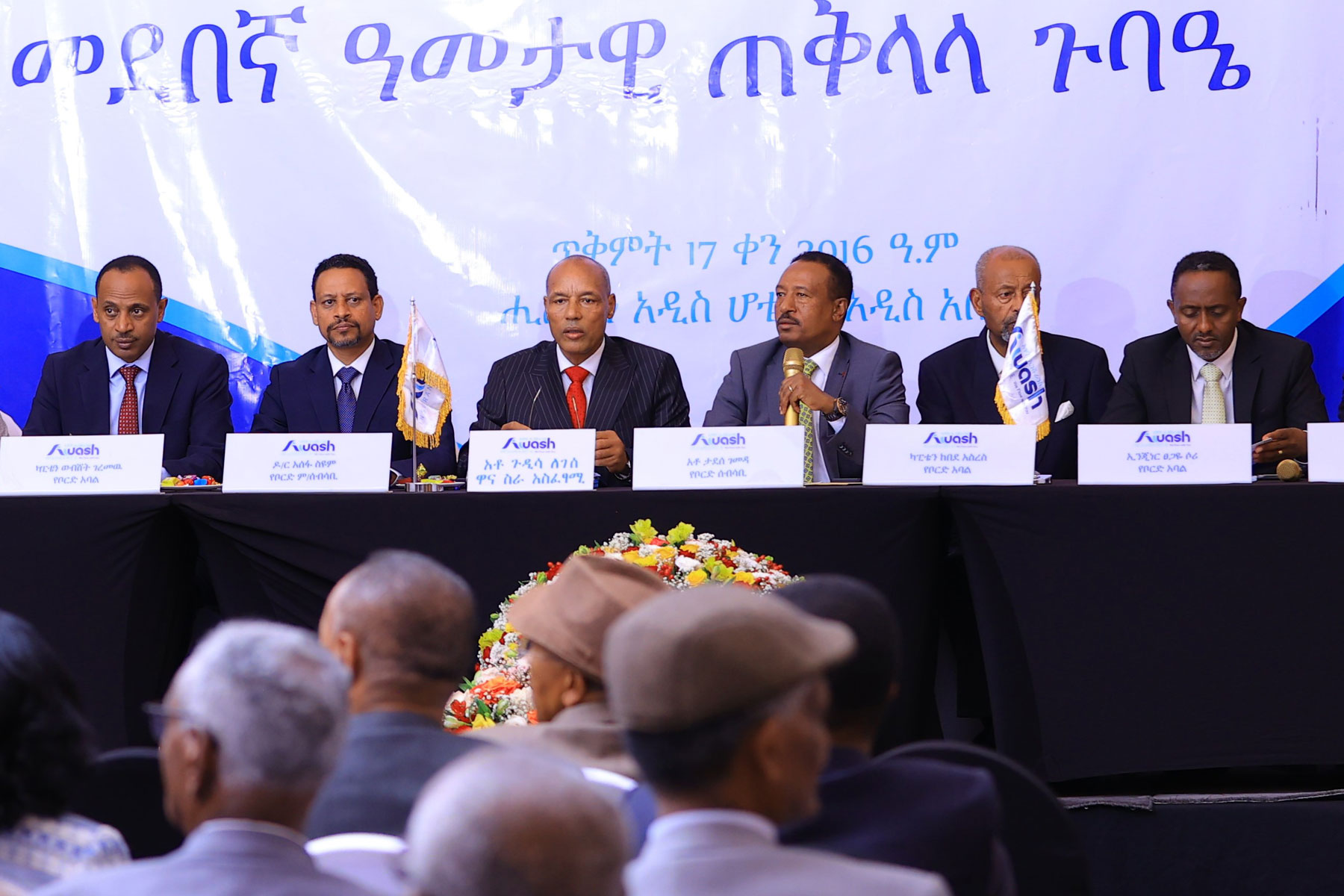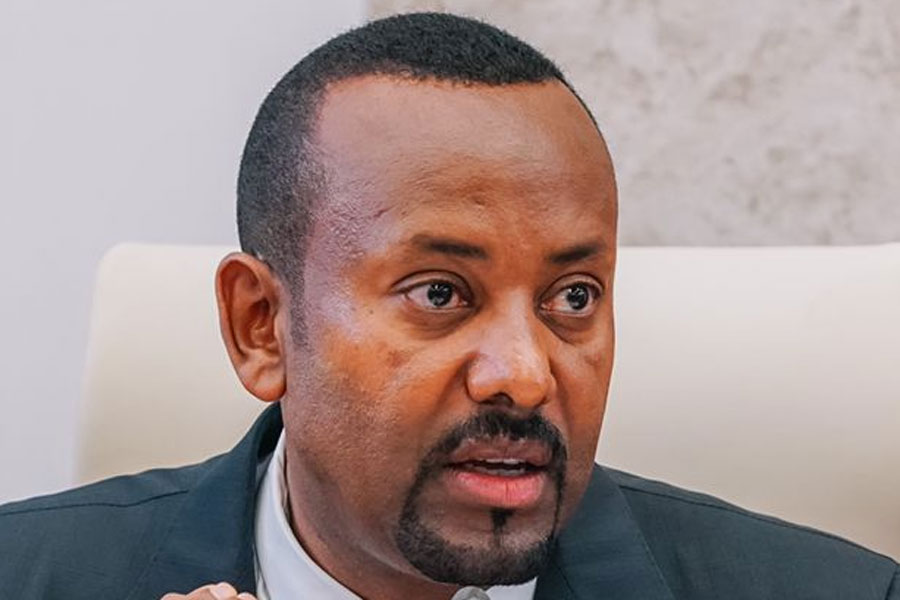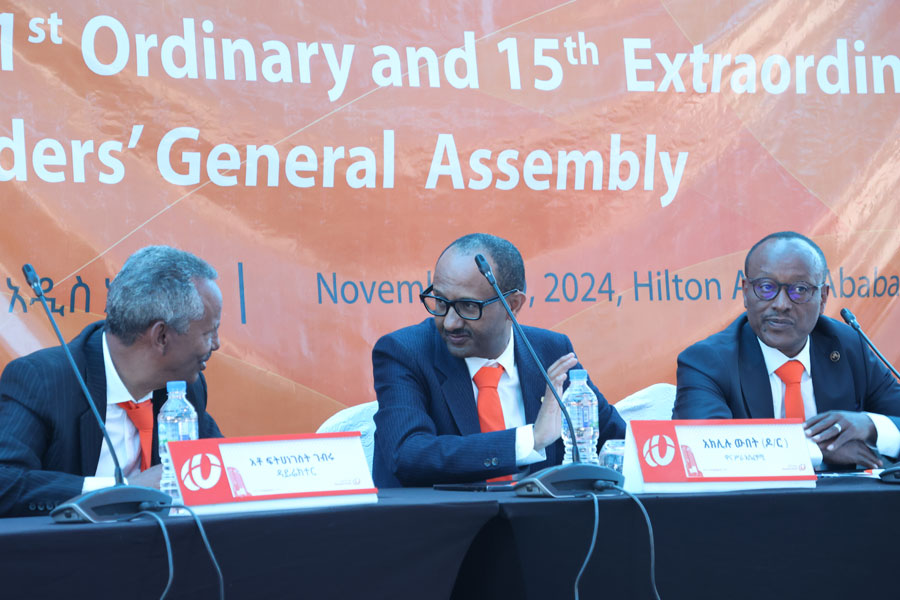
Fortune News | Apr 19,2025
Nov 13 , 2021.
Plans and reality do not always gel. They rarely do in a fast-moving world. Every action taken must be a constant re-adjustment and re-alignment with circumstances on the ground. In the end, the plan may never fit perfectly with reality, but it can be reconciled.
It is questionable that the same can be said for Prime Minister Abiy Ahmed (PhD) administration`s economic policies. It came to office promising to re-orient the economy from state-led to one where the private sector plays a prominent role. It laid the groundwork with the "Homegrown Economic Reform" agenda. It expanded and framed this framework within the 10-year Development Plan by the Planning & Development Commission, now a ministry. Fistum Assefa (PhD) and Eyob Tekalegn (PhD), minister of planning and state minister of finance, respectively, were the public faces of these efforts to reorient economic policymaking.
To their credit, there has been much to celebrate in this policy move, from opening up the economy to honing in on the long-neglected digital sector.
Countries do not do better just because they want to do as such. They have to be allowed. If the powers that be are determined to have it the other way, it is tough to have a breakthrough. Unfortunately, their colleagues on the political front chose to take a different path that mires the economy in the storms, cutting the duos ambition short.
Economic growth needs a favourable political space that ascertains law and order to the minimum. This appears to exist no longer. A civil war is raging, with fighters from the Tigray Regional State advancing into neighbouring Amhara and Afar regional states. Millions are displaced, and the human suffering continued with atrocities on the civilian population escalating.
Insurgents determined to topple the administration of Prime Minister Abiy is throughout. So are the proliferation of arms and the spread of vigilante groups matters of daily reporting.
Ethiopia has become politically unstable, economically distressed and internationally isolated. The threat of sanctions and the unrelenting negative international coverage makes economic policymaking impossible where business, as usual, should be unthinkable. Senior officials of the government appear to have recognised this, although they are reluctant to admit it. Declaring a state of emergency in response to what they consider an existential threat to the country acknowledges that they do not expect normalcy to return for at least half a year.
This calls for a candid discussion on economic managment and the need for a tentative plan until at least relative stability is secured.
Such a move will not be unheard of by any standards. Governments worldwide made extraordinary fiscal responses in the aftermath of the shocks created by the COVID-19 pandemic. As business activities slowed down, central banks went into steroid with quantitative easing. The International Money Fund (IMF) advised member countries - uncharacteristically - to run budget deficits as debt repayments were suspended for low-income countries.
When the COVID-19 pandemic reached Ethiopia in March 2020 and restrictions were placed on business activities that included public gatherings, the government moved to support businesses through subsidies and tax cuts. This was the case even as the economic shutdown was much looser, reflecting the poor capacity of the state in responding to national threats. No less than 2.5 billion Br in loans with below-market interest rates were approved for the hospitality industry, and 14.5 billion Br in tax arrears and customs duties were waived for companies. These monetary and fiscal policy tools could not account for the losses incurred by the economic impacts of the pandemic - the Ethiopian Airlines alone lost over half a billion dollars in four months in 2020 – and the implementation was rocky at best. However, every little bit helped; sometimes, a soft landing is by itself preferable.
A much deadlier threat to the economy is now present, and the government needs to develop a contingency plan deserving the political and the security climate.
Such a plan needs to confront the elevated levels of uncertainty and insecurity, which is detrimental to any notion of national development or private sector growth.
A tentative plan to be put in place - at least until the government feels time to lift the state of emergency - needs to address several pertinent questions. It can start by identifying which sectors and industries can be salvaged under the current circumstances of civil war and possible economic sanctions. Events that scare away international investors open up a gap for domestic players to fill in, mainly because the latter may have little choice in unplugging their operations and moving out. It is hard to see the consortium led by Safaricom commit more funding in a country besieged by war than Ethio telecom in the telecommunications sector.
A national emergency action plan also needs to answer how these businesses can be supported and the livelihood of their employees protected. It needs to ask what kind of support programs can be put in place.
How can livelihoods taken away by the suspension of trade privileges such as AGOA be mitigated? Exporting outside of AGOA can make goods about a third more expensive; can this be balanced by reducing industrial parks' energy and leasing costs? May depreciating the Birr further help exports become competitive?
It also needs to address what new metrics of measurement should be put in place. This could be in terms of GDP, inflation and employment. It needs to identify when the country can expect to return to the pre-Covid and war levels of development and how this can be accelerated even on the regrettable occasion that complete peace is not returned to the country.
Addressing these questions may help make better sense of the economic situation relative to the political circumstances, what can be salvaged and how it can be handled. This requires policymakers to reflect more sincerely with themselves.
However, nothing short of a negotiated political settlement to end the war can do as much good to put the country back on a constructive track. The underlying causes for the absence of security and certainty are political and profoundly structural. They have been in the making for generations. A collective foresight, convictions and determination by leaders of social and political forces battling now are what is most needed.
PUBLISHED ON
Nov 13,2021 [ VOL
22 , NO
1124]

Fortune News | Apr 19,2025

Fortune News | Sep 14,2019

Fortune News | May 13,2023

News Analysis | Apr 20,2024

Viewpoints | Jun 17,2023

Verbatim | Jan 07,2023

Viewpoints | Oct 12,2019

Commentaries | Jun 01,2024

News Analysis | Nov 16,2024

Radar | Dec 19,2020

Photo Gallery | 174796 Views | May 06,2019

Photo Gallery | 165018 Views | Apr 26,2019

Photo Gallery | 155270 Views | Oct 06,2021

My Opinion | 136727 Views | Aug 14,2021

Dec 22 , 2024 . By TIZITA SHEWAFERAW
Charged with transforming colossal state-owned enterprises into modern and competitiv...

Aug 18 , 2024 . By AKSAH ITALO
Although predictable Yonas Zerihun's job in the ride-hailing service is not immune to...

Jul 28 , 2024 . By TIZITA SHEWAFERAW
Unhabitual, perhaps too many, Samuel Gebreyohannes, 38, used to occasionally enjoy a couple of beers at breakfast. However, he recently swit...

Jul 13 , 2024 . By AKSAH ITALO
Investors who rely on tractors, trucks, and field vehicles for commuting, transporting commodities, and f...

Oct 18 , 2025 . By NAHOM AYELE
In a sweeping reform that upends nearly a decade of uniform health insurance contribu...

Oct 18 , 2025 . By BEZAWIT HULUAGER
A bill that could transform the nutritional state sits in a limbo, even as the countr...

Oct 18 , 2025 . By SURAFEL MULUGETA
A long-planned directive to curb carbon emissions from fossil-fuel-powered vehicles h...

Oct 18 , 2025 . By BEZAWIT HULUAGER
Transaction advisors working with companies that hold over a quarter of a billion Bir...